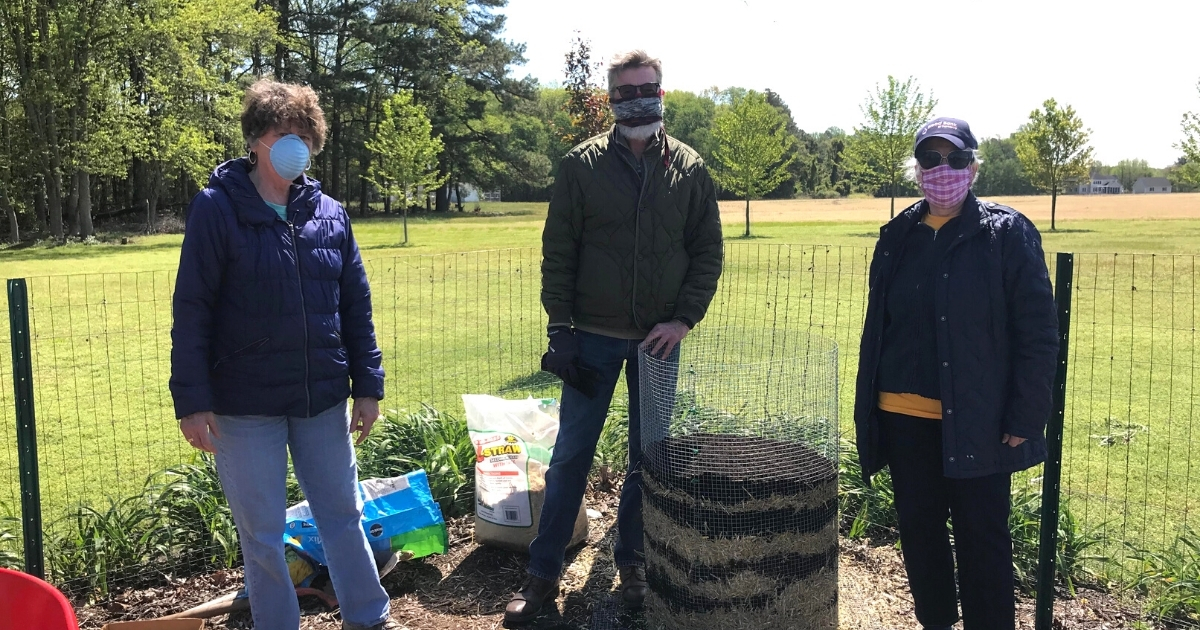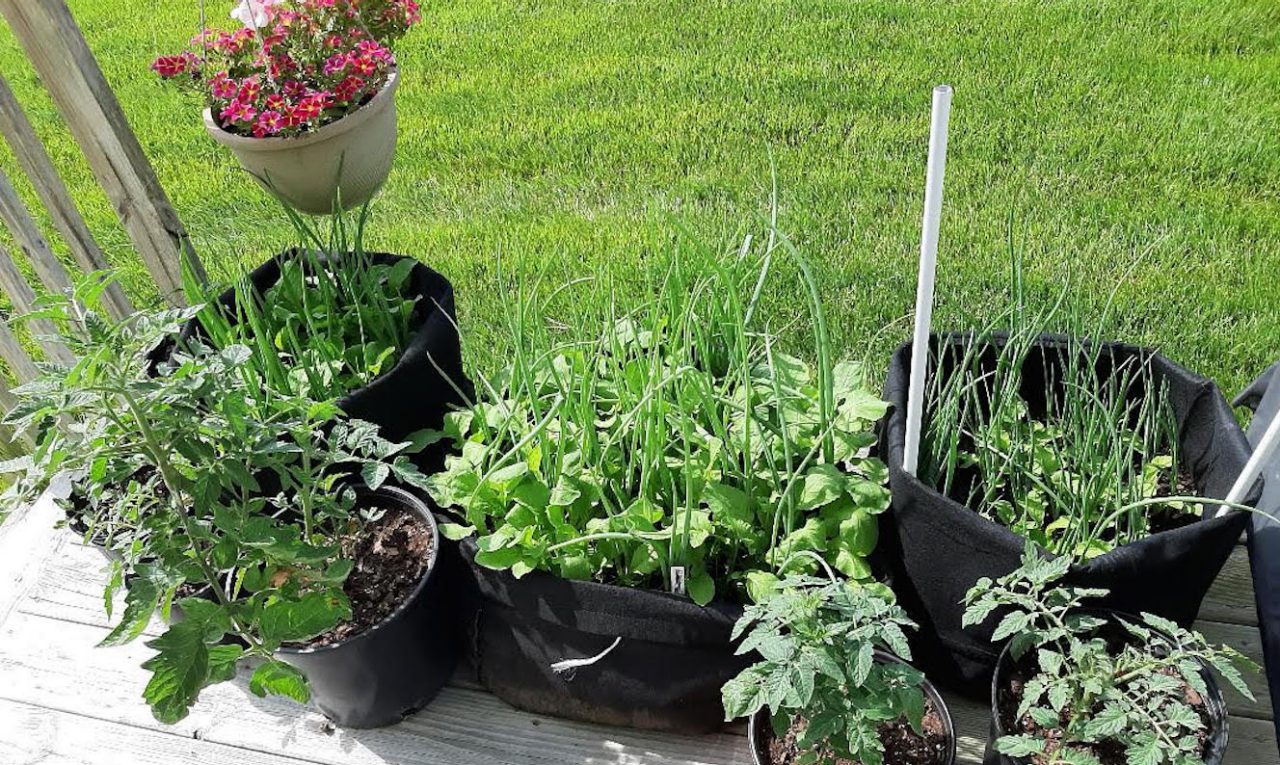
Category: Cooperative Extension

Growing vegetables for Delaware food pantries
November 30, 2020 Written by Gaye Mara and Jessica Clark, Sussex County Master Gardeners
Sussex County Master Gardeners become "foster gardeners"
A public garden in Sussex County has been called one of ten “Hidden Gems of Delaware” by an online tourist guide. In existence for two decades, the Demonstration Garden was created and is maintained by the Sussex County Master Gardeners on County Seat Highway, Route 9, west of Georgetown, located behind the county Extension Office.
This year COVID-19 closed the Demonstration Garden, both to the public and to the master gardeners. The virus also put many people out of work and significantly increased the need for donated food.
Before the pandemic, of the 32 specialty gardens within the one-acre Demonstration Garden, six were dedicated to growing vegetables — in the ground, in raised beds and containers. The entire harvest, more than 1,000 pounds in some years, are donated to the Cape Henlopen Food Basket, a Delaware food pantry.
To continue food pantry donations, the master gardeners organized a “Foster Gardener” program. Eleven master gardeners volunteered to grow produce at home and deliver the vegetables to their local food banks. A few of them had never grown vegetables before. Some experienced vegetable growers had not previously grown the particular crops they took on this season or had not raised them in pots before. So this has been a “growing” experience all the way around.

Many home gardeners have no choice but to grow their vegetables in containers because of a lack of planting space or neighborhood rules.
The gardening year in the Demonstration Garden typically starts in March — just when this year’s pandemic shutdown happened. Waiting for word as to whether and when master gardeners could get back into the gardens resulted in a late planting start. The spring growing season was lost entirely. The summer crops were started after mid-May in master gardeners’ home gardens throughout the county. A few crops were grown in the ground, but most crops were grown in containers hoping the containers could be brought back to the Demonstration Garden at some point later in the season.
What is being grown in the Foster Gardener Program?
Asparagus peas, basil, bush and pole beans, butternut squash, chard, corn, cucumbers, eggplant, kale, kohlrabi, lettuces, mustard greens, onions (red, white and yellow), parsley, peppers (both sweet and hot), pineapple sage, potatoes, radishes, sweet potatoes, tomatoes (red and yellow; cherry, paste and slicing) and zucchini. Master gardeners are also donating herbs, vegetables and even cut flowers from their gardens.
Losses blamed on critters and the weather
Hurricane Isaias blew down the cornstalks and flooded and rotted some of the potatoes.
The heat took out the mustard greens and some of the tomato plants and slowed the production of almost everything else. Cabbage worms went after the kale, birds pecked the tomatoes, deer and rabbits found the sweet potato vines quite tasty and a groundhog wrecked one master gardener’s entire garden. But what did we do? We’re gardeners -- we carried on!
Foodbank donations
When the program ended in October 2020, the Foster Gardeners had donated 104 pounds of fresh vegetables to food pantries in five locations across the county.
What the Master Gardeners learned this season:
- Food banks and pantries are grateful for fresh vegetables and herbs -- and flowers, too.
- Taller plants need to be staked and/or sheltered from the wind.
- For best production from indeterminate (vining-type) tomato plants, which can grow five feet and more in a season, interior suckers should be pruned out (see Sidebar). Internet videos also show how to prune indeterminate tomatoes. The nursery tag should indicate whether the tomato plant is determinate (bush) or indeterminate (vining).
- In the heat of summer, vegetables grow better in the ground than in pots.
When growing vegetables in pots:
- The bigger the pot, the better. The soil won’t heat up as much or dry out as fast.
- Large tomato plants need at least a 15-gallon pot.
- Water, water, water!
Elevate pots out of the reach of rabbits.
- Netting or caging can be used against other pests.
It is said that no experience is wasted. That has certainly been true for this one. The lessons learned will come in handy in the Demonstration Garden next year, when we will need to clear the weeds that are now filling all the planting beds and deal with all the weed seeds left in the soil. We may have to grow in containers in the Demonstration Garden for a while.
One of the surprises of this pandemic has been the huge growth of interest in home vegetable gardening. Many home gardeners have no choice but to grow their vegetables in containers because of a lack of planting space or neighborhood rules.
A workshop about container vegetable gardening is being considered for the 2021 growing season. Lessons learned will be taught for community gardeners and master gardeners.
If you are already growing vegetables at home and are looking for advice, call a Delaware Master Gardener helpline or submit a question to our Ask Extension question portal! And if you would like to donate some of your fresh produce to a food bank, learn more on the Food Bank of Delware website.
